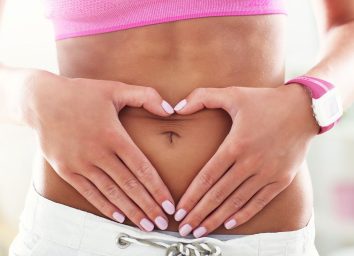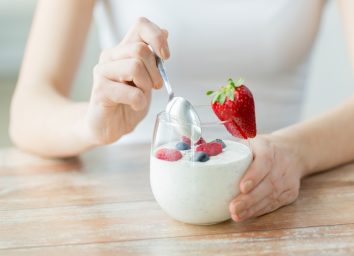Eating Habits for a Healthy Gut as You Age, Say Dietitians
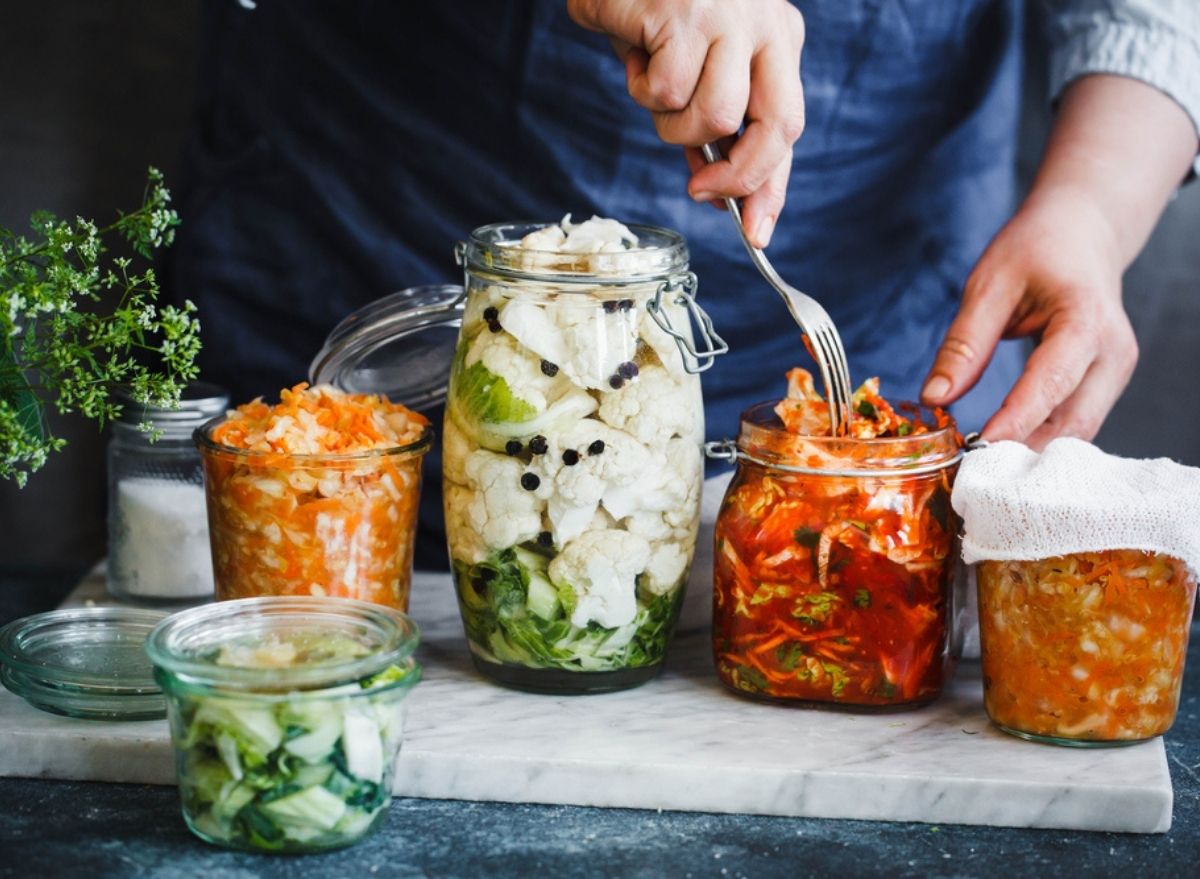
Research indicates that dysbiosis, or the imbalance in the microflora of your gut, can influence all kinds of health problems—metabolic diseases like obesity and diabetes, cardiovascular disease, immune and endocrine disorders, cancer, bone disease, circulatory problems, and even cognitive-aging and Alzheimer’s disease.
The trillions of microbes in your gut, therefore, play an active role in your overall health—which means what you feed your resident bugs matters big time. Establishing healthy eating habits could even be more important to gut health as you age, suggests research from the National Institute on Aging.
“As people get older, there tends to be more medication use, which can have a detrimental effect on the gut,” Sydney Greene, MS, RDN, a member of our medical expert board.
Here are a few dietitian-approved tips on how to keep a healthy gut as you age, and for more gut health advice, here’s what science has to say about the Popular Foods That Can Improve Your Gut Health.
Get fiber in your belly.
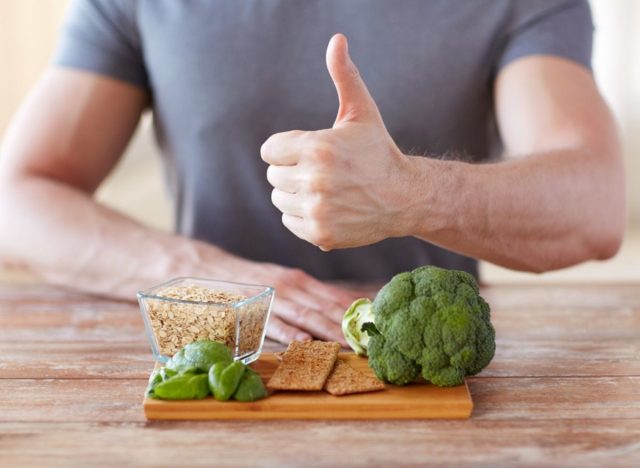
The trick to getting your gut back in balance for life is establishing microbiome-friendly eating habits, starting with fertilizing your gut with fiber.
“It’s important to consumer fiber-rich grains, fruits, and vegetables to optimize gut health,” says Greene.
Fiber is the fuel that feeds bacteria so it can grow in number and become more diverse. A large and diverse population of microbes creates a thick mucus barrier lining our intestines, which lowers inflammation throughout the body and protects against toxins from leaking through the intestinal wall, a syndrome called “leaky gut.”
Refrain from the refined.
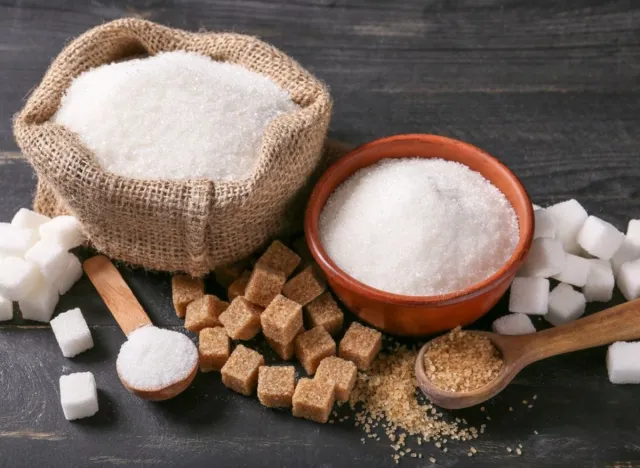
Reducing your consumption of refined flour products and sugars from snacks and beverages goes hand-in-hand with eating more fiber-rich whole foods. Make a habit of skipping white bread and baked goods as much as you can while switching to more complex carbohydrates like whole oats, quinoa, brown rice, and sweet potatoes, says Laura Krauza, MS, RDN, of Waistline Dietitian.
Fill up on fermented foods.
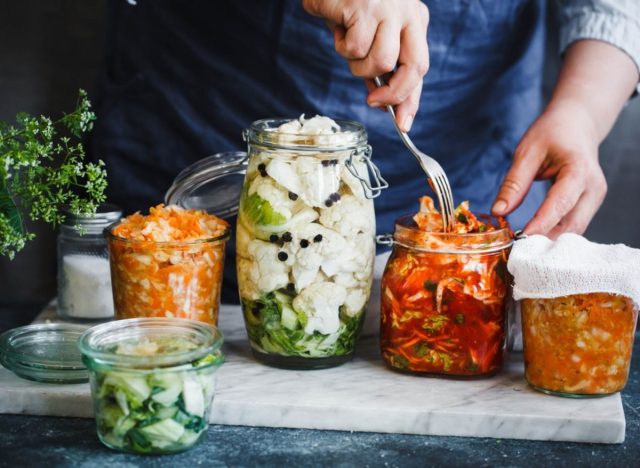
While you’re making a habit of eating more fiber-rich foods, work in some foods that have been naturally fermented. Microbes thrive in preserved foods like sauerkraut, naturally fermented pickles, kimchi, kefir, and yogurt.
“I recommend adding at least one probiotic-rich food to your diet per day,” says Greene.
They provide an influx of beneficial probiotics while lowering the pH of your intestine, making it inhospitable to bad bacteria.
For a more detailed explanation, here’s What Happens to You When You Eat Fermented Foods.
Don’t resist starch; eat the resistant kind.
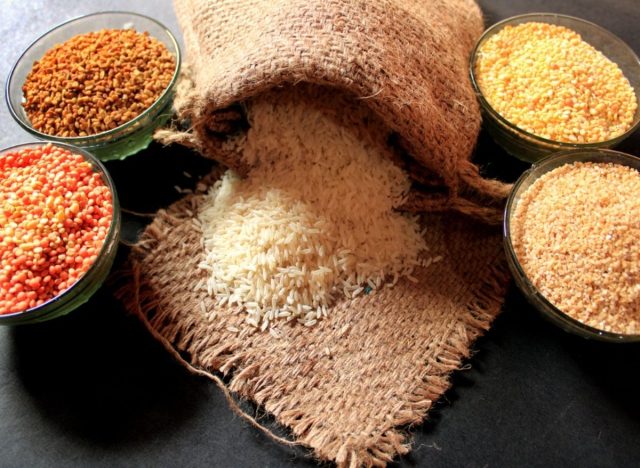
You may have heard of this defiant carbohydrate called resistant starch. It earns its reputation by resisting digestion in the small intestine and moving along to the large intestine where its’ fibers ferment into a prebiotic that feeds the good bacteria in the gut.
“This is really important for our immune system and also for helping us stay lean,” says gut health expert Kara Landau, RD, and founder of Uplift Food. “By-products from the fermentation help improve the insulin response and decrease fat storage around the waist.”
Resistant starch is found in grains that have been cooked and then cooled such as lentils, legumes, pulses like white beans, and green bananas. Landau recommends using resistant starch flour in baking as well.
Load up on lactobacillus.
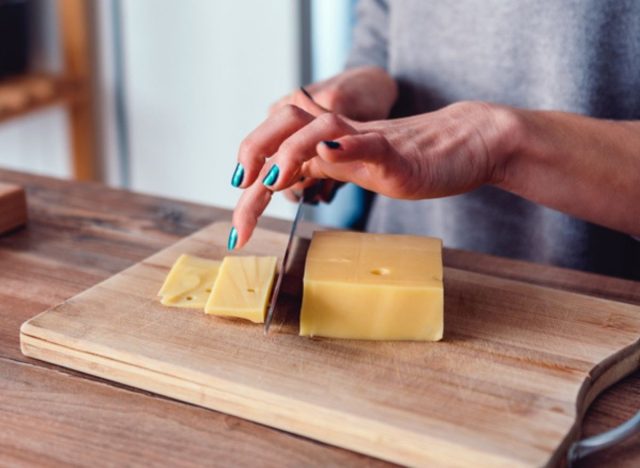
We’re sure you’re familiar with yogurt’s probiotic benefits. You may even know that yogurt is particularly good at increasing health-promoting species of Lactobacillus. But did you know that cheese is another good dairy source of gut-friendly bacteria?
“Cheese is good for your gut; it has its own microbiome, the result of its starter culture,” says William W. Li, MD, author of Eat to Beat Disease: The New Science of How Your Body Can Heal Itself.
Parmigiano-Reggiano, the famed hard cheese from Parma, Italy, is rich in Lactobacillus casei and Lactobacillus rhamnosus, which studies suggest may be beneficial against gastroenteritis, diabetes, obesity, and cancer, Dr. Li says.
Eat less meat.
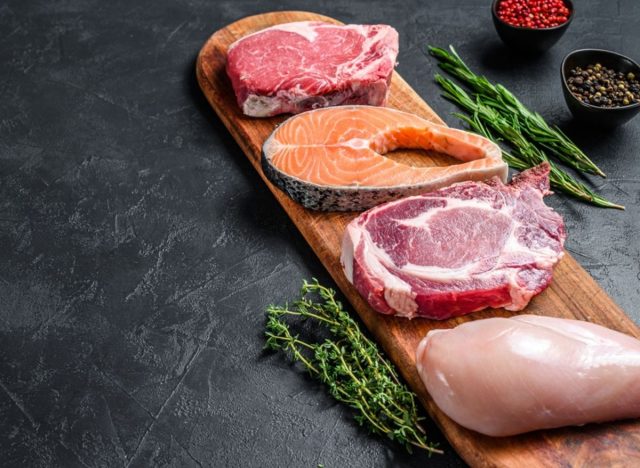
“Eating meat is hard on your microbiome,” says Dr. Li.
How so? Well, it’s pretty simple. The more animal protein you eat, the less room there is in your diet for the plant foods that supply the dietary fiber your microbiome needs. Less fiber leads to an unhealthy ecosystem of gut bacteria.
“More animal protein shifts the bacteria to behave in ways that generate more inflammation of the gut,” he says.
By consuming less meat, you can reduce the harmful effects of inflammation. And because many meat products are highly processed, they contain chemical food additives and preservatives that destroy health-promoting bacteria.
Eat less often.
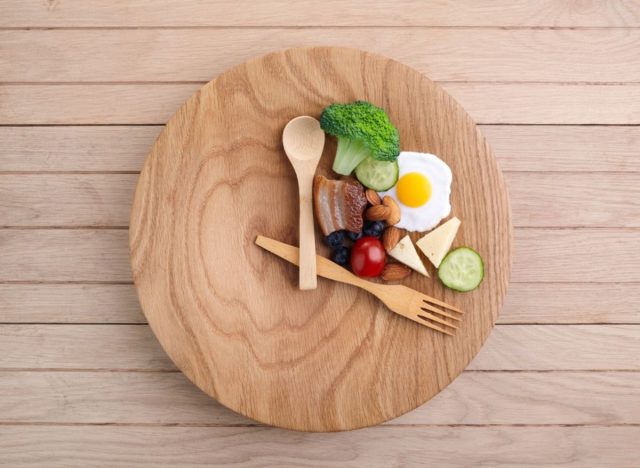
Another strategy for fostering a healthier gut microbiome may not necessarily have to do with what you eat but when and how often. A study in the journal Nutrients explored how meal frequency and fasting may impact the makeup of the bacteria in the gut.
The findings point to the same health benefits studies show for eating breakfast, consuming the bulk of calories early in the day versus at night, and fasting, namely reduced inflammation, improved cell regeneration, and less gastrointestinal stress.
Plus, the researchers found one significant addition: increased microbial diversity in the gut, the hallmark of a healthy microbiome in the intestinal tract.
For more on how fasting can help your health, here’s how Intermittent Fasting Can Lead to “Significant” Weight Loss.

